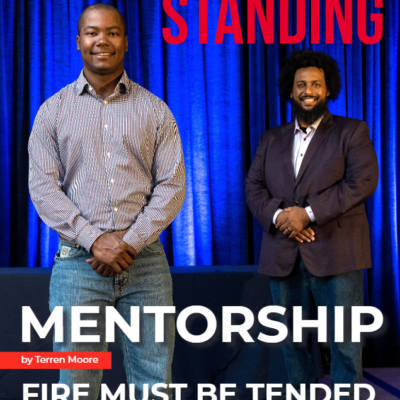Let me ask you something… When you look at your insurance agency’s recent sales, what is the number one source of new business, time and time again? For most of us, the answer is simple, it’s all about word of mouth referrals. If that’s the case though, then how is marketing going to help our business grow? We tell many insurance agencies across the U.S. and Canada that marketing’s job is never done, and in fact, it should be the heart of your insurance agency. That’s quite a claim, but you better believe we can stand behind it. At the end of the day, when you look at your marketing strategy, it should be designed around helping your business grow, but it could focus on indirect means. For instance, let’s say a new prospect came into your business as a word of mouth referral; that’s great, because it’s a newly established relationship, and one more to focus on when it comes to referrals. But, somewhere along the lines, there was a situation that triggered that referral. It could have been two friends meeting over breakfast, a family member, or even a social media share that made the individual consider giving you the referral.
The key about marketing is that it’s meant to provide your existing customers with the best possible customer experience, especially since we live in a business of renewals, so you have to earn your customer’ business repeatedly on an ongoing business. Not only does providing the best possible customer experience provide you with ongoing income based on renewals, but it also triggers these precious marketing moments that will generate more referrals for your business, which is the number one factor behind agency growth. Today, I’m going to tell you why you should focus on trust instead of driving traffic to your digital marketing avenues, including your website, emails, and social media, and the overall effect it will have on your agency.
Social Sharing
A huge part of this strategy takes place on social media, especially since a lot of digital marketers could potentially refocus their end goals with social media to provide better results overall for the business. Think about it this way, when you go into the social world, are you focusing on getting the most possible views on your posts, or the most possible hits on your website, or even the most possible visits to your company profile? Well, there’s one metric that we don’t see getting enough attention in the independent insurance space right now, and that’s the number of shares your posts/content receive.
I would argue that social shares are actually the most important thing you should be tracking across all of your social media networks. There is a bit of psychology that goes into social media interaction. The simple way to look at things is that if someone were to “like” or “comment” on a post, they’re really only temporarily bonding with it or, they’re giving you their buy in, but only for the moment. When someone shares your content, this is their way of saying that you not only have a more permanent buy-in from them, but they are more likely to tell their network about your content as well. It’s their way of standing up and saying, “This is something I believe in and want to support,” to the rest of their network. This is critical, especially since 70% of Americans seek out opinions before making purchases (Mintel).
Content that moves is a clear indicator of sales, and part of the workflow in a sales pipeline. So be sure that your social media is focused less on traffic, and more on getting shares from your network. If you’d like to learn about receiving more shares on your social media networks, be sure to check out our article, The Psychology Behind Shared Content.
Reviews and Testimonials
Another key area where this strategy comes into play is with your insurance agency’s reviews and testimonials online. As we mentioned earlier, most Americans want to hear about their network’s opinions before committing to a purchase, and that’s okay. It’s up to us as marketers to recognize this partner, and capitalize on it wherever we can; this is where your reviews and testimonials come into play.
When we look at the customer buying journey, first, they have a problem that needs to be solved. After that, they will typically ask family and friends to see if they can get a word of mouth referral for a solution. If this doesn’t help them, then they hop online. Now, when someone Google searches for insurance in your hometown, hopefully you have taken the steps to properly optimize your insurance agency’s website so that you show up in the search results. Although, once your agency shows up on Google’s listings, one of the first things that will display is the Google reviews for your business in the right hand side of the search results. Now, if someone were to search for the name of your insurance agency directly, such as if they typed in “Paradiso Insurance” into Google with my agency as an example, now they will be offered to see reviews from other services as well, such as Facebook or Yelp.
It is absolutely crucial for you to ask for reviews from your audience, especially from your “raving fans,” or the people who enjoy following you the most. This will have a huge impact on your online reputation. If you’re curious on where to begin for getting reviews, check out our article, 4 Tips for Getting Reviews.
Remember, at the end of the day, word of mouth referrals are the number one source of new business for you and your insurance agency. Not to mention, when it comes to your marketing, you should be focusing less on traffic, and more on building trust while providing an outstanding customer experience to each and every one of your customers. If your marketing department spends all day crafting the most beautiful content that your agency’s ever seen, it will get you nowhere unless it gets shared. Content that gets simply just seen is much less powerful than content that moves, never forget that! Good luck with your marketing strategy, and be sure to let us know in the comments below how your agency plans to focus more on trust and less on traffic moving forward.





